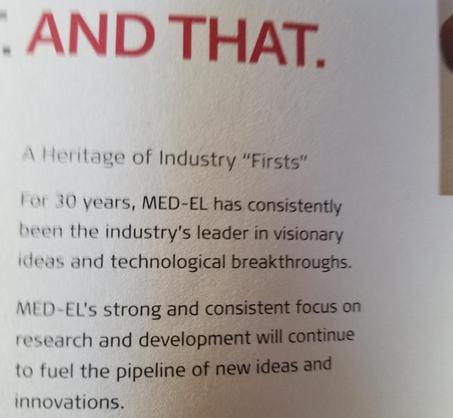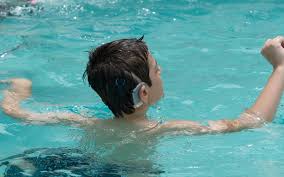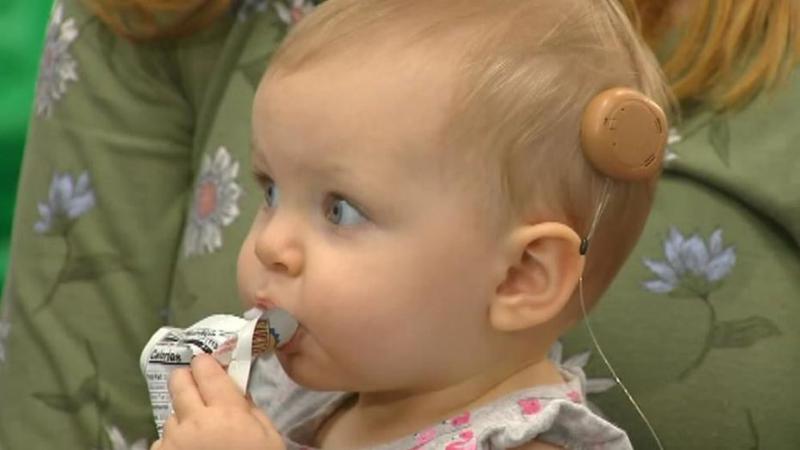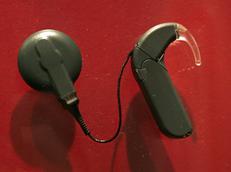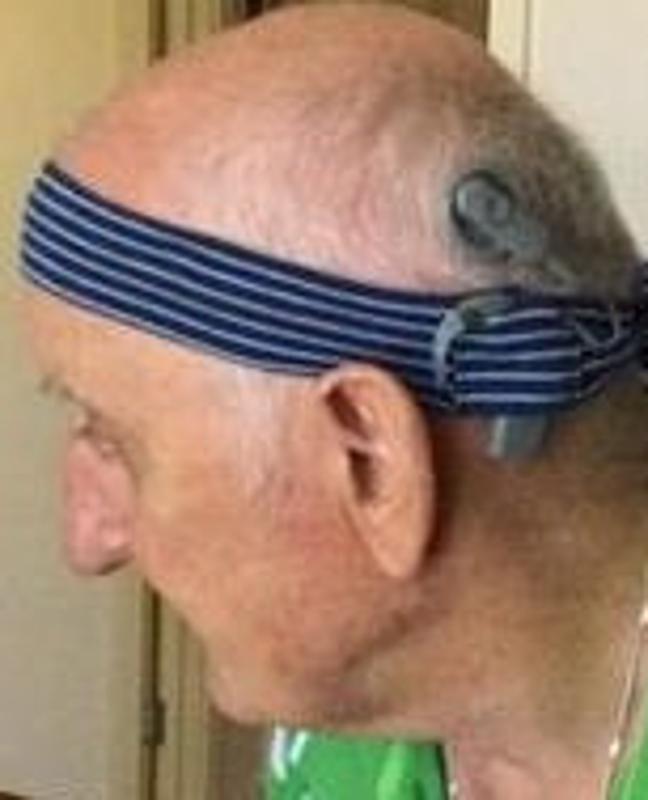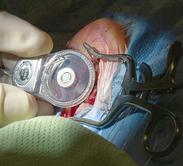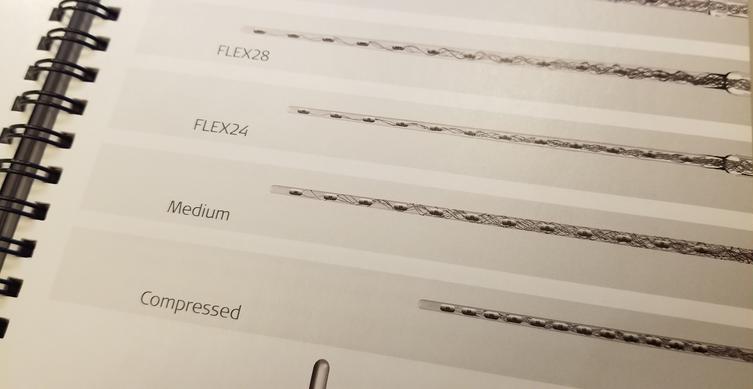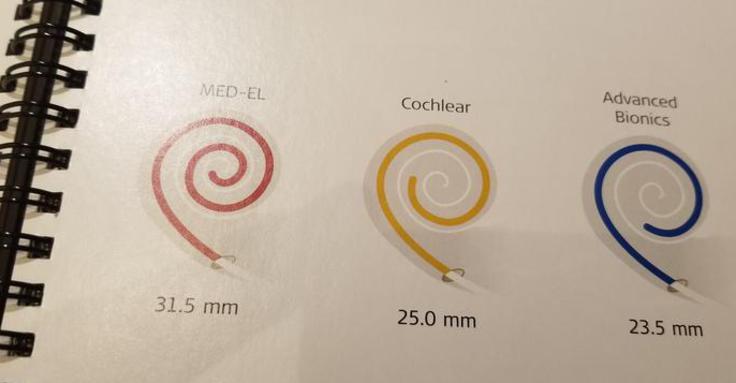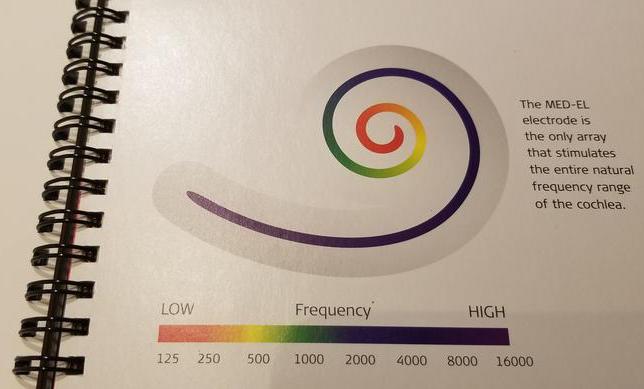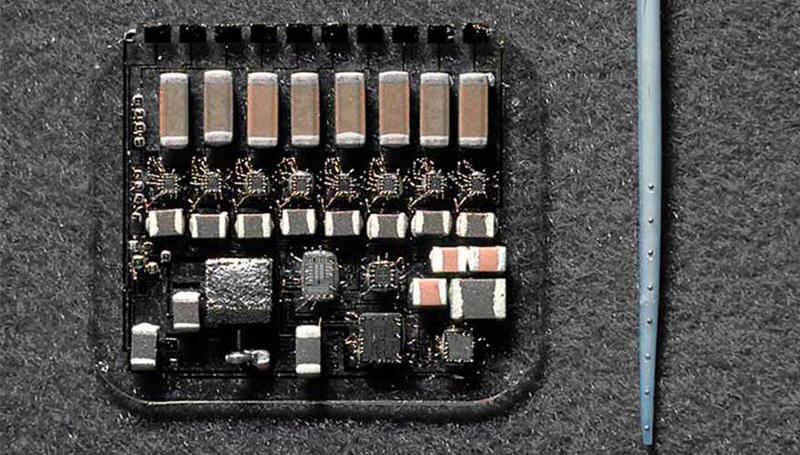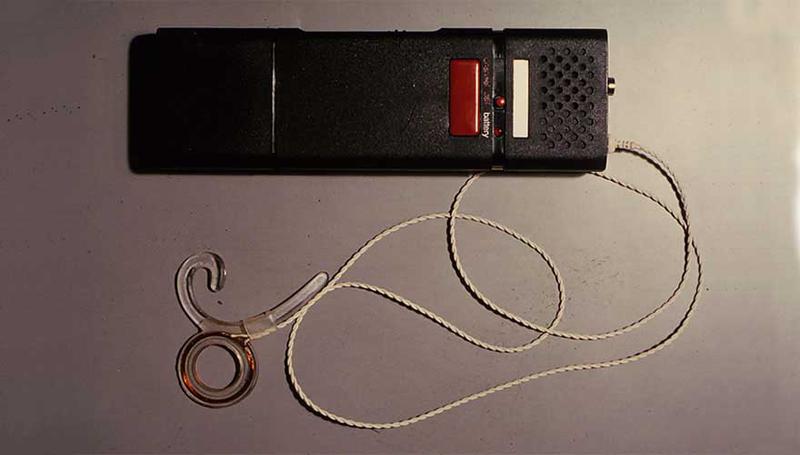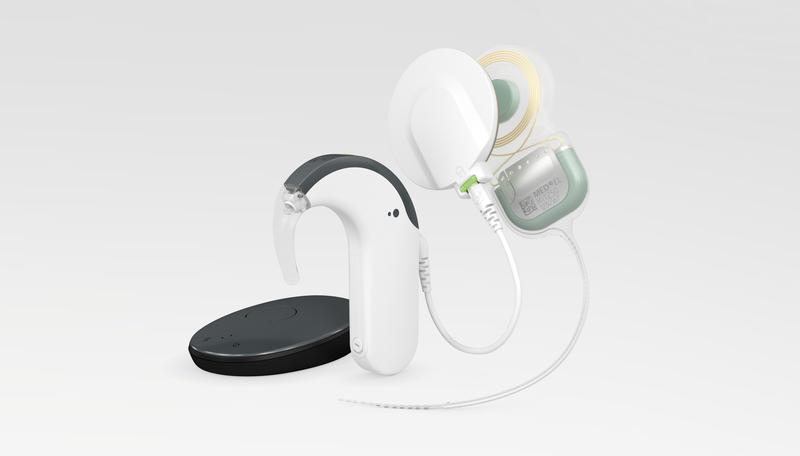Med-El Cochlear implant review
This was the first company in 1977 that was first to market cochlear implants. Nearly every person buying a cochlear implant is comparing Medel to Cochlear "TM". Notice: I was called by someone and I was told I must put the "TM" next to the Cochlear brand when comparing it for legal purposes. So, if anyone sees that TM it is because I was required to do it.
As far as Med-el, I will say that 30% of the people are convinced that Med-EL is the one to get and the other 70% are convinced that Cochlear "TM" is the one to get after talking to the reps for each company in that order. As far as sales, Med-el is in 2nd place as far as how many get sold each year. I feel bad for them as they are the ones who seem to come out with the latest advancement each time and then another company makes a similar advancement without breaking their patent.
We're open now.
Ask for Beth
1-877-827-4849
CochlearImplantsReviewed.com
... because every company is saying their cochlear implant is the best
We're open now.
1-877-827-4849
Ask for Jay
ADVANCED BIOTICS - COCHLEAR - MED-EL - OTICON - RECOCHLEAR - OTICON - NUROTRON
Nearly every company is claiming they are the industry leader. I am starting to take photo copies of each company making this claim. I busted one company saying they were the pioneer when if my math is correct, they came out several years later.
I do see a strange difference in the doctors that recommend the Med-el brand over the AB or Cochlear "TM" brand. They have a totally different vibe. If you don't understand what I mean, talk to several surgeons that only recommend AB, for example, and then talk to ones that only promote Med-el or Cochlear "TM" for example, and you will see what I mean. The doctors that promote this brand seemed to know the answers to my questions that the other two brand promoters didn't know.
There is a totally different vibe with those who promote Med-el. It's like they don't get caught up in the marketing hype. But that is only from my research talking to all the doctors over the years doing my research.
Med-EL Coming up with stuff
I am going to say this for them as I would be pissed off too if I just came out with some breakthrough technology and immediately a competitor is copied just as fast as they can. I have seen another company take their technology and make it better and right after that, Med-el makes theirs better. It's called evolving. There is nothing wrong with it. It is a good thing for business. If there were no competition driving new technology, maybe the implants today would not be as good as they are. So, I don't want to hear any company brag on how they were the first. They should want what they introduced perfected even if someone else can make it better. I know people who have implants from all 3 companies and most people are happy. It is just when there are problems that could of been prevented such as in the healing process where if their partial oxygen pressure was maybe just a little bit lower and their voltage a big jump higher. It is not always the surgeon or the fault of not getting the right implant brand. The first 2 weeks is the most crucial. If someone really can't afford to get that pressure reduced and the voltage higher, I do have some pull. I try to use it only when someone is in a dire situation and it is an invitation only. If people are going to ask me for something free, I usually will say no. Too many times I have given them as loans and not gotten them back. When I am the one that offers, I have always gotten them returned. So, please let me use my discretion and intuition when I want to offer them.
Note: People are asking if Med-el is FDA approved. They were the first one the market in 1977 but in 1981, 4 years later, Cochlear "TM" came out with their version and they were the first to get the approval. I can only imagine what Medel had to go through when they had no idea a new competitor would come out 4 years later. After that, Med-el became FDA approved. It costs a lot of money to get cleared and approved and I doubt that they had the money at that time.
PS. just so people know, Med-el stands for Medical Electronics Corporation.
I ask people that come out of offices and if they have Med-el do they know what Med-el stands for.
See my other video, I find 100 random people with cochlear implants coming out of clinics and get feedback what they do and don't like about their implant.
I was surprised that each person complains about the same thing with each brand.
As far as a qualitative analysis of Med-el, I will say that their internal implant is the smallest that no one has yet been able to make a different brand of implant that small. Out of all the clinics that I hang out at, most kids have the Med-el and as far as adults, its always 50/50 between Med-el and Cochlear "TM". It is always a surprise when I see someone with a different brand. There have been a few people that have traveled to Canada to get the Oticon brand since they are not approved in the USA here. The people that have the Oticon, especially the parents, all seem more frustrated than the parents that bought on of the other 3 brands. It's like they got fed up and decided to go with a totally different brand. Maybe it is because where I am is so close to the Canadian border and they can go to Canada to get it serviced. nj u
This is a from the Med-el book, not the brochures that most people read or the "This is Why brochure that most people read. The book is the real book that goes way more in detail that many people don't read. You have to ask for the expensive one with the harder cover. It is not something that normally. T/his is a page taken out of the manual that I took a picture of. I believe it should be an informed choice about everything that goes into the person's implant. Parents or the end user should have a choice of which electrode style not just having an employee of an implant company keep saying their brand is the best. I urge people to research research research... but in the right way, not the way most people are doing it.
This is the book most people get their hands on first. If I rewrote this brochure it would look totally different. I have strong opinions on their brochure but no body listens to me. I have a better chance of getting an hour of nopys than people at high levels listening to my advice.
Although all the electrodes would work, depending on the ear ecology, one of these types of elecrodes may be better. I urge people to know the differences between all the electrodes from this brand and all the other brands. Every company seems to have a slightly different electrode. Some are made of different metals and different yield and tensile strengths. This is the stuff most people don't know to ask. I hope people will read over my buyer's guide and comparison between Med-el, Cochlear "TM" and AB and really knowing the differences based on a qualitative review analysis.
Notice to parents researching cochlear implants for their child:
Of all the parents I ask, not one of them know hardly anything in detail about the electrode that is in their child's implant.
This is very sad. And I mean that.
3 Answers - After asking Med-el, Cochlear "TM", and AB. I am putting this question on the Med-El page since they are known for the longest electrodes
Question: Is a shorter or longer electrode better?
My Answer: Many people get caught up on if longer is better that will stimulate more or if a shorter one is better. The better question to ask for those that have done more research are how the electrical impulses are coded and what are their algorithms. I can talk to people on a level that most people are at after their research which is "very naive" or on a very high level that most people won't understand unless they have done the research I have done. Some people can't handle a longer electrode as there is more risk to to their cochlear ecology.
Note: Med-el is known for their
So, there are opposing viewpoints on if a long electrode or a short electrode is better. I urge people to hear both sides as hearing one rep say the longest is the best and then the shortest is the best can get confusing. The shorter 23.5 mm electrode may be less of a gamble than potentially destroying residual hearing with a 31.5 mm electrode. The 31.5 mm Med-el electrode that is made of implant grade titanium will work for those that are a candidate for the longer electrode. Not everyone is a candidate. Otherwise, the benefits that the other brands have may be another choice and there would not be a sacrifice since the 31.5 mm would not be suitable based on that person's cochlea. Those that are a candidate for a 31.5 mm electrode that fills the entire cochlea will have the highest fidelity sound and full spectrum but ONLY if they are a candidate. Implant grade titanium is super expensive and is only good if it can be utilized, otherwise, the other brands that don't use titanium I have no problem with. There is a risk since destroying the residual hearing is not good either. This is why it is very important for the person getting the implant to balance out the pros and cons of each brand before choosing a brand. All of the FDA cleared brands are good but there is always one that will be the best match. Most people don't get this deep into research and may have a limited range when they could have been a candidate for a full spectrum sound.
If you talk to Med-el, you will probably be convinced that their electrode is better and there implant provides the most natural sound and you will hear unmuffled bass, the really deep bass but ONLY IF SOMEONE IS A CANDIDATE FOR THIS LONGER TYPE.
Research note: I urge those doing research to know the ability of different electrode lengths and the implants effect on the fine structure of the sound. Electrodes with less length will need a different algorithm make the sound more clear. I have noticed that people with shorter electrodes cannot localize as well and even recognize if the person talking is a man or woman as their implant's ability of timing the sound cannot do what a the long electrodes offer for full spectrum hearing. A question to ask if considering implanting a shorter electrode is knowing if you are a candidate for a larger "sound envelope' or a candidate for a "finer sound structure". There is no wrong choice but those that focus too much on a sound envelope which a shorter electrode can give may sacrifice sound quality and may have a problem with pitch, but those that really want the best sound quality may sacrifice a bigger sound envelope. Those that are well researched should know this stuff.
As far as getting the 31.5 mm electrode that Med-el is known for, many candidates have neural structures in their cochlea that they can hear the lower frequencies and may not require a longer electrode. Those with profound hearing loss may be more of a candidate as they don't have any hearing in the apex of their cochlea thats responsible for the bass sounds.
The implant grade titanium electrodes Med-el uses are the most flexible and softest electrodes I have compared and require the least insertion force to reach the apex of the cochea. I have never heard of anyone getting a damaged cochlea with Med-el.
I believe everyone should hear the sales pitch for and against each brand but from a qualitative analysis, not a sales pitch that many people take more seriously when they vibe with the person giving the companies pitch. Most people buy from people they have a rapport with and a good relationship almost always from my experience with people choosing an implant is distracting and gets in the way from doing an in depth comparison and choosing based on ones needs and ear ecology.
Final note:
Choosing Med-el can be very confusing especially if you hear about Medel first and then talked to one of the other 2 FDA registered brands (everyone should know the other 2 brands by now). Nearly everyone is 50/50 in their choice based on hearing the sales pitches for and against Med-el. Those who choose Med-el should first know if they are a candidate for getting their 31.5 full spectrum electrode. Those who are a candidate for this brand will get the highest fidelity sound BUT ONLY if the person is a candidate for getting that last third of their cochlea implanted. The price of the Med-el implant is way more expensive than any of the other implants on the market. The best way to catorigize their implant is like a high end stereo system. Those who have the ear ecology to utilize their technology will be very lucky. Most people that I talk to that have Med-el implants.
For those that may be sensitive to heavy metals, people may want to find out if the titanium being used is implant or surgical grade.
The impurities (heavy metals that normally would leech into the body are removed by "vacuum melting". Not all metals are purified like this.
The First Cochlear Implant invented in the world invented by Med-el.
Processors were huge back then in 1979.
I bet no one that had them would have ever imaged it could be small enough to wear on the ear.
They ran on a 9 volt battery back then.
This is the latest for 2019-2020. This is probably the highest tech cochlear implant I have seen ever. This is the Synchrony 2 with the Sonnet 2 audio processor. Their Maestro 8 software is so advanced I can't even keep up with it. If using this with their 31.5mm electrode I don't think anything can come close to their high fidelity sound. This one has a 3:1 compression ratio, the lowest of any cochlear implant ever. Most are at 12:1 but no way 12:1 can deliver anything close to high fidelity sound. Those who get this implant are truly lucky, even with a 28 mm electrode. This was just approved in 2019 for single sided deafness (its about time!)
For anyone that wants to talk about cochlear implants, I am here. This is my calling. This is what I love to talk about. I don't work for any companies. I do not want anyone to go through what I went through, that's probably the best way I can say it.
Those considering Med-el: (people a candidate for a longer electrode)
Med-el uses implant grade titanium in their implants. This is a step above surgical grade. The impurities (heavy metals that normally would leech into the body are removed by "vacuum melting".
